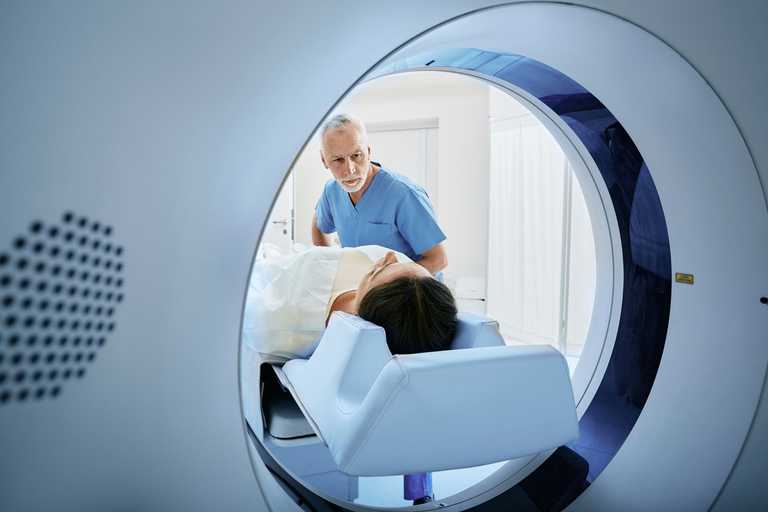Complete Diagnostic Care with Prime Diagnostic Plus
Our all-inclusive diagnostic scanning package offers everything you need for quick, expert care—all for a fixed price.
Learn more

Prime Health Ambassador, Felicity Bee shares ‘A day in the life as a Junior Doctor’.
“I am now coming to the end of my first year of foundation training, I’ve rotated across three specialities and it’s definitely been a journey of discovery, education and emotion.
The year has brought some beautiful moments of reward that I will never forget – the small moments that resonate with me where I personally made a difference.
Receiving my first handwritten thank you letter from a patient for the care I provided; the smile and kind words from a patient who had been under our care for months just a few hours before she passed away; and the well done from a colleague for my efforts following a cardiac arrest.
The job has always been made enjoyable by the team I work with. As the most junior in the team, my colleagues took me under their wing giving me the support I needed on the job. Often deemed at the bottom of the food chain as an F1, I was very fortunate to have such a supportive workforce, everyone being keen to give me learning opportunities, rush to support in complex cases and even be there to listen when I first cried at work.
There is no doubt that there is a degree of Stockholm syndrome that soon sets in, patients becoming very sick, the pain of working late every day, the issues of management such as bed availability and staffing issues, being overridden by the thought that you can’t leave a colleague behind. A mentality, that even though things are tough, the team are all in it together.
In terms of a ‘life in the day’, the truth is no day is the same. We rotate through specialities – I am currently on paediatrics after completing 8 months on gastroenterology followed by colorectal surgery. These jobs all differed greatly, gastro being renowned for having some of the sickest patients in the hospital and surgery having a myriad of complex patients and the addition of theatre time. Our rotas also mean we jump between 9-5 ward days, to 12 hour ‘on calls’, twilights and night shifts.
For the case of example of ‘A day in the life of…’, I can reflect on the set of night shifts I have just come off.
First thing to note, this year I have become an expert in sleep. I finish a shift at 9:30am, travel home to be asleep by 10 to be woken by my alarm at 7pm giving me enough time to do a light gym session or go for a run. This is something I have endeavoured to do as a four day break from training can often make coming back to it post nights particularly difficult. Saying that, I am always very conscious of my own fatigue avoiding anything too technical and keeping sessions short and light after long shifts.
After having some breakfast (at dinner time), I head to work for 9 pm.
9pm – Shift starts and we have Handover. This is where the day team relays information on each patient to the registrar and two juniors who are covering the nights. They will highlight jobs to be done, patients who are particularly unwell and any concerns that need raising.
9:30pm – A brief walk around the ward to check with the nurses if they have any concerns, and a time to do any jobs on the ward – including re-cannulation, reviewing respiratory patients to ensure they are on the correct oxygen requirement and inhaler/nebuliser therapy, NG tube placement and altering feeding.
11pm – We are hit with an influx of patients from ‘out-of-hours ‘GP referrals and A&E. Patients include a 9 week old baby with a high temperature, a 13 year old brought in by ambulance in status epilepticus, an 11 year old having an asthma attack, a 5 year old with 3 days of vomiting, a 2 year old with a non-blanching rash, a possible safeguarding case of a 1 year old with a broken leg and an intoxicated 14 year old.
Prioritisation is now key and to establish who needs urgent care. All could be argued as the highest priority, with all patients carrying the possibility of deteriorating quickly.
Appropriate management pathways are initiated, additional teams e.g. T&O, CAMHS are contacted and care is delivered as efficiently as possible.
We also carry bleeps – this means other members of staff can get in touch with us, and informs of us any emergencies that need to be attended to straight away.
As you can expect some nights are busier than others and it’s impossible to predict when our first break of the night will come, however, we are always conscious an under-fuelled, dehydrated doctor doesn’t perform as well so sometimes a case of tag-teaming the opportunity of having a cup of tea and 5 minute break.
6am – We try to regather our thoughts, and reassess patients that we have been managing. We continue to see patients who have presented to the emergency assessment unit throughout the night until approximately 8:30 am where we will ensure the patient list is put together.
Early morning jobs such as IV access and fluids are all organised for patients having early morning operations or procedures.
9 am – The day team arrives all bright-eyed, and we have a handover – explaining the cases that were admitted overnight, discuss plans and jobs for the day.
9:30 am – Head home, eat, shower and get into bed, ready to do it all over again in the evening.
5 years of medical school prepares you well for the pathology you’ll see but F1 comes with a new degree of responsibility, challenges and a requirement to balance the demands of the job along with the other important parts of your life.
‘Burn out’ is so often mentioned as a concern for doctors, especially juniors in the early days so I made it imperative to continue to keep a healthy balance of work and life. Seeing friends on days off, enjoying my sport and exercise and nothing is more valuable than debriefing to my mum or partner on the trials and tribulations of a tough day. This always centres me; recognising that I am only human, it’s ok to feel emotion, I am doing my best and that a healthy, happy doctor provides the best care.
There remain issues within the NHS that are out of my control, extensive waiting times, restricted visiting, and limited bed availability and for every patient that faces these difficulties I am truly sorry.
I extend my heart and sympathy to those who are affected. It’s not fair, it’s not right and I hear your frustration. What I can promise though is that within the health system there is a warmth, energy and soul put in by the staff – a patient-focused wish to provide care, and optimise the health of every patient.
From discussion with friends, the part that makes a career in healthcare differ to other jobs is the human component. The stories you hear, the lives you affect, and the power of human touch that comes apparent when you are holding the hand of a frightened patient. This is an aspect I value more than anything, the driving force and my ‘why’ for doing the job and the part that makes being a doctor the best job.”
Our all-inclusive diagnostic scanning package offers everything you need for quick, expert care—all for a fixed price.
Learn morePrime Health Surrey has enhanced its healthcare offering with the installation of a state-of-the-art CT scanner. Appointments available.
Learn moreIn partnership with the General Practice Group, we have extended our Private GP service to our centre in Harley Street, London.
Learn moreIn partnership with the General Practice Group, we have extended our Private GP service to our centre in Brighton.
Learn more

